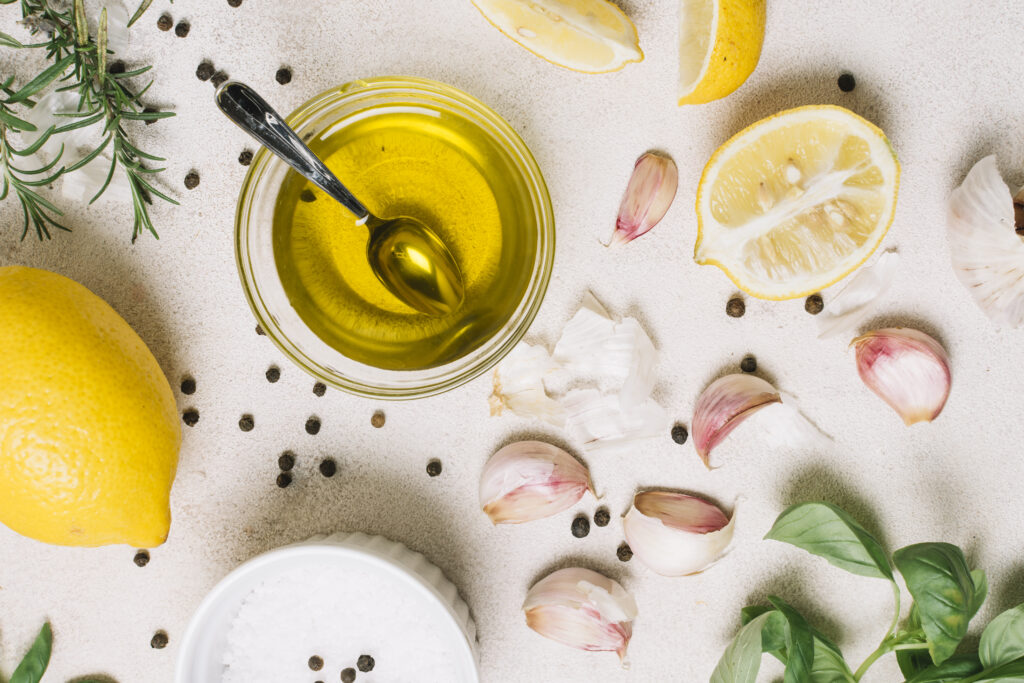When baking cakes, the choice of oil isn’t just about flavor—it can also impact the nutritional value of your dessert. Oils play a crucial role in ensuring a moist, tender texture while also providing essential fats. With so many options available, you might wonder, what is the healthiest oil for baking cakes? This guide explores the best options for health-conscious bakers, their effects on cake recipes, and practical tips for using them effectively.

Whether you prefer rich olive oil or mild canola oil, there’s an option to suit every recipe and dietary need. Let’s dive in.
Why Is Oil Important in Cake Baking?
Oil is an essential ingredient in baking, especially for cakes, because of its unique properties:
- Enhances Moisture: Oil helps create a soft, moist texture that lasts longer than cakes made with butter.
- Improves Texture: Unlike butter, which solidifies at room temperature, oil stays liquid, giving cakes a tender crumb.
- Aids Gluten Inhibition: Oil coats flour proteins, reducing gluten development and ensuring a softer texture.
To learn about how oils compare to other fats like butter, check out this comprehensive guide from Serious Eats on using oils in baking.
What Makes an Oil “Healthy”?
Not all oils are created equal. When selecting the healthiest oil for baking, consider the following factors:
1. Fat Composition
- Unsaturated Fats: Monounsaturated and polyunsaturated fats are heart-healthy and help lower bad cholesterol.
- Saturated Fats: These should be limited but are acceptable in moderation, as found in coconut oil.
2. Nutritional Content
- Omega-3 Fatty Acids: Found in canola oil, these fats support brain and heart health.
- Vitamin E: Present in grapeseed and sunflower oils, this antioxidant promotes skin and immune health.
3. Smoke Point
An oil’s smoke point is the temperature at which it starts to break down and release harmful compounds. High-smoke-point oils like canola or sunflower are ideal for baking at higher temperatures.
For more on understanding smoke points and their importance, visit The Kitchn’s guide to smoke points in oils.
The Healthiest Oils for Baking Cakes
1. Olive Oil: The Mediterranean Classic
Olive oil is a powerhouse of health benefits and one of the healthiest oils you can use in baking.
- Best for: Cakes with bold flavors, such as citrus, chocolate, or olive oil cake.
- Nutritional Benefits: High in monounsaturated fats and antioxidants, which reduce inflammation and support heart health.
- Types: Use light olive oil for a neutral flavor or extra virgin olive oil for its fruity, robust notes.
Pro Tip:
Olive oil’s flavor can enhance cakes like orange or lemon drizzle. Its slightly fruity notes pair beautifully with zesty ingredients.
2. Canola Oil: Versatile and Mild
Canola oil is one of the most commonly used oils in baking, thanks to its neutral taste and affordability.
- Best for: Vanilla, chocolate, and sponge cakes where you don’t want the oil to influence the flavor.
- Nutritional Benefits: Rich in omega-3 fatty acids and low in saturated fats, making it heart-healthy.
- Tips for Use: Choose organic, non-GMO varieties for the best quality.
3. Coconut Oil: Flavorful and Trendy
Coconut oil has gained popularity for its versatility and unique properties.
- Best for: Tropical-flavored cakes like carrot or pineapple cake.
- Nutritional Benefits: Contains medium-chain triglycerides (MCTs), which are easily metabolized for energy.
- Drawbacks: Higher in saturated fats compared to other oils, so use it sparingly.
Pro Tip:
For a subtle coconut flavor, use refined coconut oil. If you want a stronger tropical note, opt for unrefined (virgin) coconut oil.
4. Sunflower Oil: Mild and Heart-Healthy
Sunflower oil offers a neutral flavor profile, making it ideal for delicate cakes.
- Best for: Sponge cakes, chiffon cakes, and pound cakes.
- Nutritional Benefits: High in vitamin E and unsaturated fats, supporting skin health and reducing inflammation.
- Tips for Use: Use cold-pressed sunflower oil to retain more nutrients.
5. Grapeseed Oil: A Lesser-Known Gem
Grapeseed oil is extracted from grape seeds, making it a sustainable choice for health-conscious bakers.
- Best for: Light, airy cakes like angel food or white cakes.
- Nutritional Benefits: Packed with antioxidants and vitamin E, promoting heart and immune health.
- Flavor Profile: Its neutral taste won’t interfere with delicate cake flavors.
Substitutes for Oil in Cake Baking
Looking for oil-free alternatives? These substitutes are not only healthier but also add unique flavors and textures to your cakes:
1. Applesauce
- Why It Works: Adds moisture and natural sweetness.
- Best for: Low-fat baking or fruity cakes.
2. Greek Yogurt
- Why It Works: Provides creaminess and boosts protein content.
- Best for: Rich, dense cakes like chocolate or pound cake.
3. Mashed Avocado
- Why It Works: Adds healthy fats and a creamy texture.
- Best for: Chocolate cakes, where its flavor is masked by cocoa.
4. Fruit Purées
- Why It Works: Keeps cakes moist while reducing fat content.
- Best for: Spiced cakes or those with complementary fruity flavors.
For additional guidance on baking substitutions, check out this helpful article from Food Network on oil substitutes.
Tips for Choosing the Right Oil for Your Cake Recipe
Selecting the right oil depends on the type of cake you’re baking and your dietary preferences. Here are some practical tips:
1. Match Flavors with Oils
- Olive oil works well in cakes with citrus or chocolate flavors.
- For neutral-tasting cakes like vanilla or sponge, stick to canola or sunflower oil.
2. Consider the Baking Temperature
- Use high-smoke-point oils like canola or sunflower for recipes baked at higher temperatures.
3. Test in Small Batches
- When trying a new oil or substitute, bake a small portion to ensure the flavor and texture are as expected.
FAQs: Healthy Oils for Baking Cakes
What Is the Healthiest Oil for Baking Cakes?
Olive oil stands out for its monounsaturated fats and antioxidants. For a neutral flavor, canola or sunflower oil are excellent alternatives.
Can I Substitute Butter for Oil in Cake Recipes?
Yes, but the texture will differ. Butter creates a denser crumb, while oil results in a lighter, moister cake.
Does Using Oil Make Cakes Moister?
Absolutely! Oil remains liquid at room temperature, which helps cakes retain moisture longer than butter-based recipes.
Which Oils Should Be Avoided for Baking?
Avoid oils with strong flavors like unrefined peanut oil unless the recipe specifically calls for them. They can overpower the other ingredients.
Conclusion
The healthiest oil for baking cakes depends on your priorities—health benefits, flavor neutrality, or specific dietary needs. Olive oil is a top choice for its heart-healthy properties, while canola and sunflower oils offer mild options suitable for a wide range of cakes. Coconut oil, although higher in saturated fats, works wonderfully in tropical-inspired recipes. Don’t forget to experiment with substitutes like applesauce or Greek yogurt for even healthier options.
For more baking inspiration, visit Recipes Mint. Explore related guides like why is my banana bread dense and not fluffy or can I use Greek yogurt instead of banana in baking. Happy baking!
